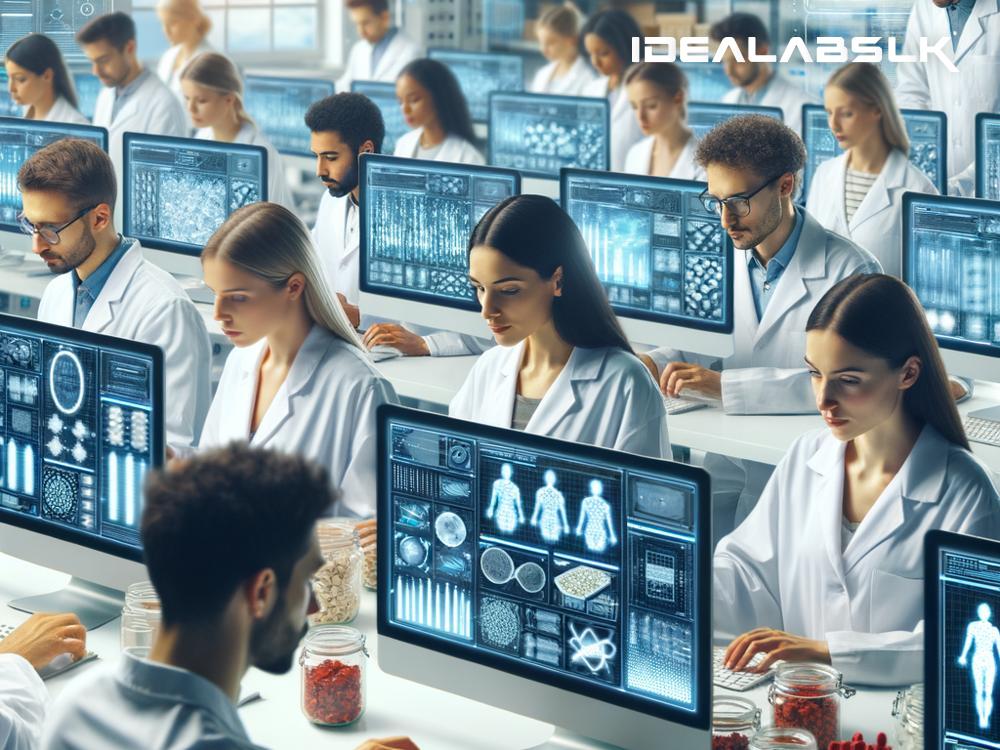AI in Optimizing Food Packaging for Extended Shelf Life: Revolutionizing the Food Industry
When we talk about the future of food packaging, artificial intelligence (AI) is at the forefront of transforming the industry. Optimizing food packaging using AI is not just a trend; it's rapidly becoming a necessity. The goal? To extend shelf life, reduce waste, and ensure that the food reaching your table is as fresh as possible. But how exactly is AI making these significant strides in food packaging? Let’s dive into the exciting possibilities.
Understanding the Role of AI in Food Packaging
At its core, AI involves using computers and machines to mimic the problem-solving and decision-making capabilities of the human mind. In the realm of food packaging, AI is employed to analyze vast amounts of data to predict, decide, and execute packaging strategies that can significantly prolong the shelf life of food products.
But why the heavy focus on extending shelf life? Well, the answer is twofold: sustainability and safety. By reducing the rate at which food spoils, we can cut down on waste, making the food industry more sustainable. Moreover, extended shelf life ensures that consumers have access to safe and nutritious foods even if they store them for longer periods.
How AI Is Revolutionizing Food Packaging
-
Smart Packaging Design: AI algorithms can assist in designing packaging that adapts to the unique needs of different food products. For example, certain foods require specific atmospheric conditions inside the pack to stay fresh for longer. AI can analyze data related to these conditions and help design smart packaging that adjusts its permeability to gases or humidity levels, thereby extending the food's shelf life.
-
Predictive Analysis: This involves analyzing data from various sources to predict the ideal conditions for storing and transporting food. By understanding how different factors like temperature, humidity, and light affect food spoilage, AI can optimize the packaging process to extend shelf life.
-
Quality Control: AI-powered visual inspection systems can identify defects in packaging that are invisible to the human eye. This ensures that only appropriately packaged foods, which are more likely to have a longer shelf life, make it to the market.
-
Supply Chain Optimization: AI helps in predicting demand accurately, thus ensuring that the right amount of food is packaged and distributed. This not only reduces wastage but also minimizes the need for overstocking, which can lead to spoilage.
The Impact of AI on Sustainability and Reducing Food Waste
One of the most significant impacts of using AI in food packaging is its potential to make the food industry more sustainable. Food waste is a massive problem worldwide, with vast amounts of food being discarded every day due to spoilage. By extending the shelf life of food products, AI-enhanced packaging solutions can drastically reduce this waste.
Moreover, smarter packaging means that less material can be used without compromising the food's quality. This directly translates to less environmental impact, as less waste ends up in landfills, and fewer resources are needed for production.
The Future of Food Packaging with AI
The potential for AI in food packaging is enormous. As technology advances, we can expect even more innovative solutions to emerge. For example, imagine packaging that can communicate with your refrigerator to alert you when the food inside is nearing its expiry, helping you plan your meals more efficiently and waste less food.
Another exciting prospect is the development of more personalized packaging solutions. AI could help in designing packaging that is specifically optimized for the storage conditions in individual homes, further extending food shelf life and reducing waste.
Conclusion
AI in food packaging is more than just a technological advancement; it's a new way to look at food storage and consumption. By extending shelf life, reducing waste, and promoting sustainability, AI is setting the stage for a revolution in the food industry. As technology continues to evolve, the possibilities are endless, and the benefits are substantial, making AI an invaluable tool in our quest for a more sustainable future.
In a world where the demand for food is continuously rising, and the need for sustainable solutions is more pressing than ever, AI offers a beacon of hope. It’s a tool that, if harnessed correctly, can help us take significant strides towards a more efficient, less wasteful, and more sustainable food industry.

